4-Day Exquisite Adventure in Beautiful Saint Lucia
Saint Lucia
4 days
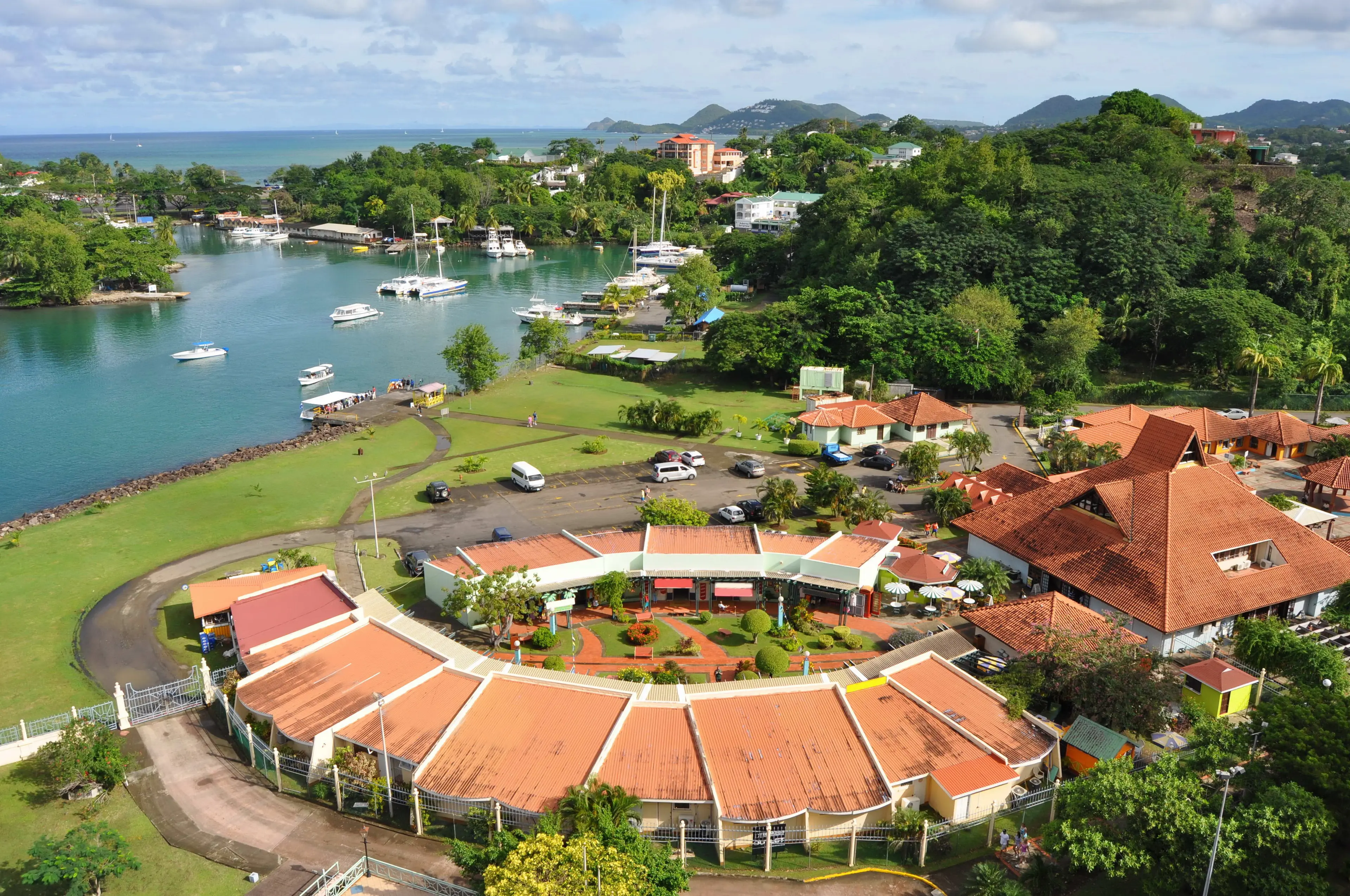
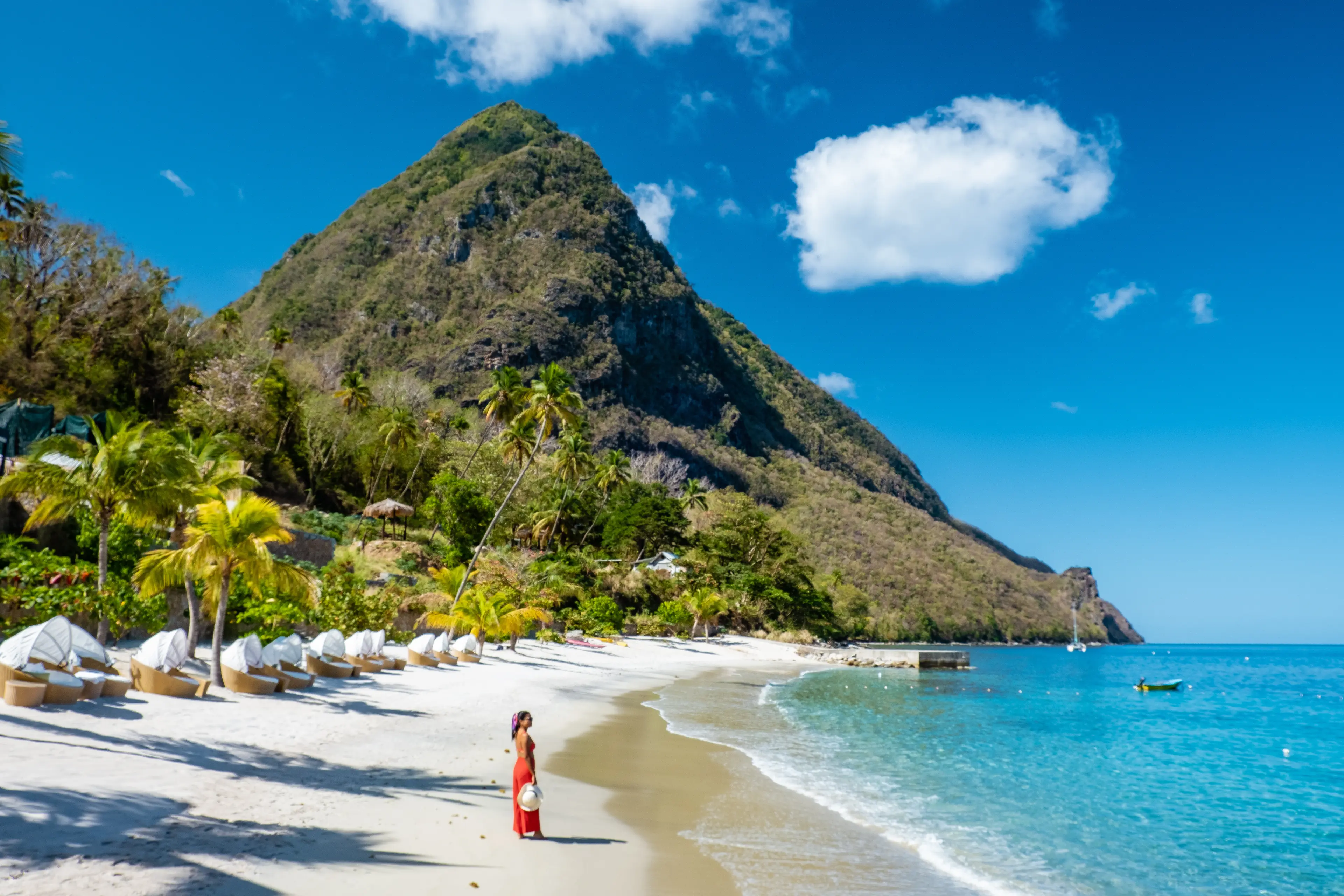
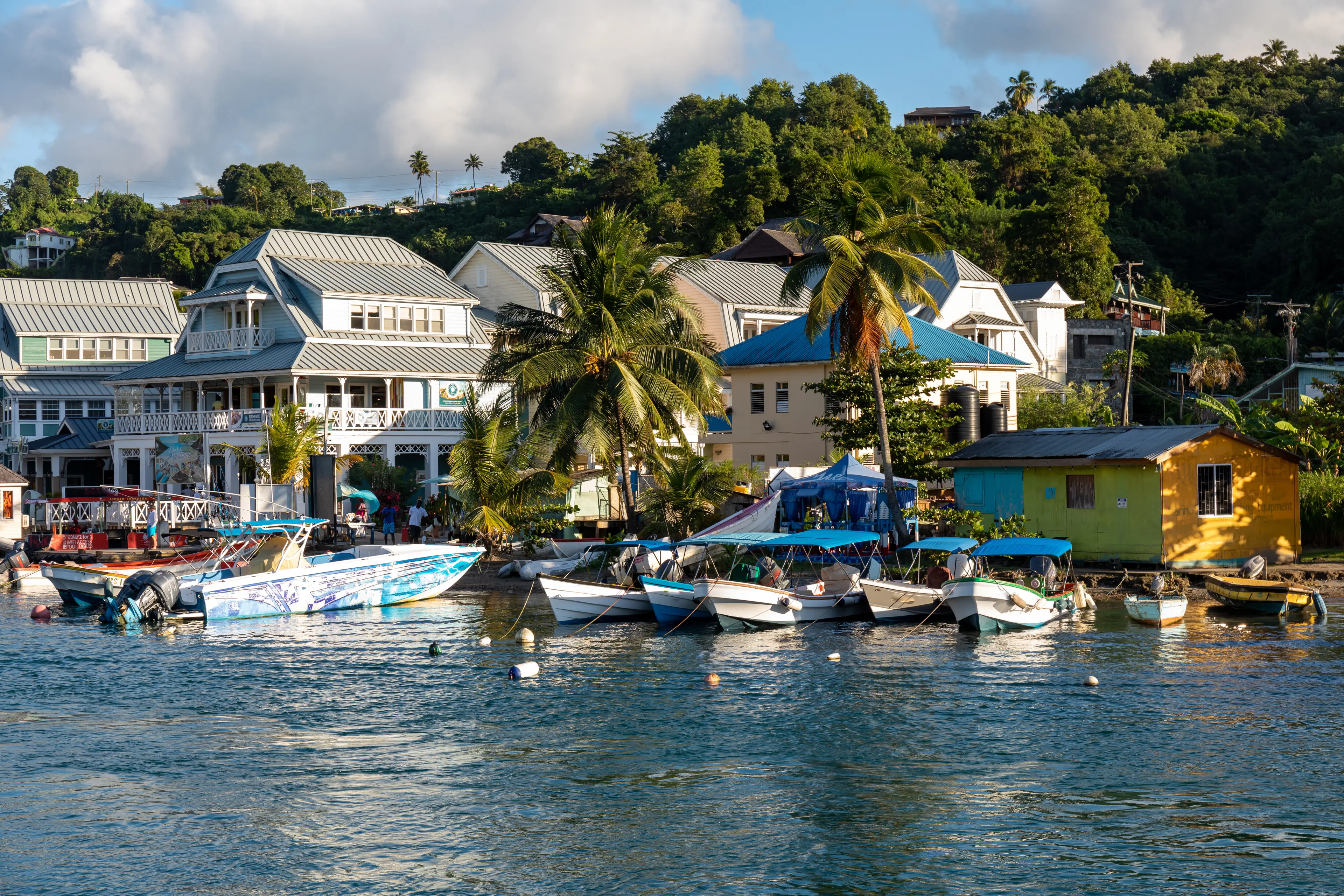

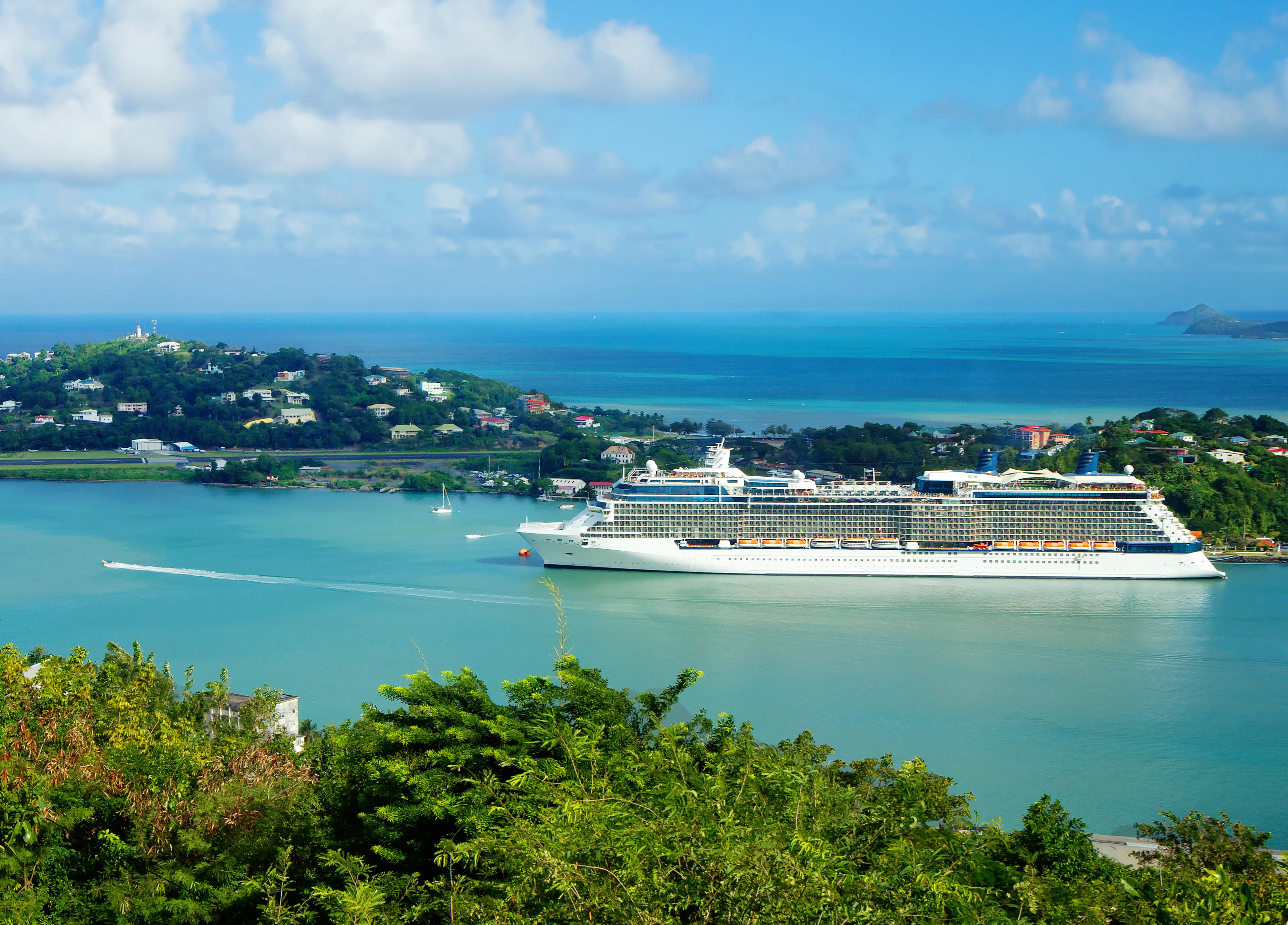
About Saint Lucia
Saint Lucia, a gem in the Caribbean Sea, is a paradise for travelers seeking sun, sea, and serenity. This tropical island boasts of pristine beaches, crystal-clear waters, and lush rainforests. The iconic Piton Mountains, a UNESCO World Heritage Site, offer breathtaking views and adventurous hiking trails. Explore the vibrant local culture in the capital, Castries, with its bustling markets and colonial architecture. Indulge in the island's unique Creole cuisine, and don't miss the world-renowned St. Lucia Jazz Festival. For relaxation, visit the Sulphur Springs for a rejuvenating mud bath. With its blend of natural beauty, rich history, and warm hospitality, Saint Lucia promises an unforgettable vacation.
4-Day Itinerary
Day 2
Discovering Soufriere and the Pitons
Morning
Visit the Soufriere Volcano, the world's only drive-in volcano. Take a mud bath in the sulphur springs for a unique experience.
Lunch
Have lunch in the town of Soufriere, known for its Creole cuisine. Try the local breadfruit and saltfish.
Afternoon
Explore the Diamond Botanical Gardens, home to the Diamond Waterfall and mineral baths.
Dinner
Dine at a restaurant with views of The Pitons, two volcanic spires that are a UNESCO World Heritage Site.
Evening
Relax at your hotel or resort, enjoying the amenities and the beautiful surroundings.
Day 3
Cruising the West Coast and Shopping in Castries
Morning
Take a catamaran cruise along the west coast of Saint Lucia, enjoying the views of The Pitons and Marigot Bay.
Lunch
Enjoy a picnic lunch on board the catamaran, with local dishes and tropical fruits.
Afternoon
Visit the Castries Market, a bustling marketplace where you can buy local crafts, spices, and fresh produce.
Dinner
Have dinner at a restaurant in Castries, trying the local dishes like roti and callaloo soup.
Evening
Take a stroll along the Castries Waterfront, enjoying the evening breeze and the city lights.
Day 4
Historic Sites and Beach Relaxation in Castries
Morning
Visit the Morne Fortune, a historic site with panoramic views of Castries and the Caribbean Sea.
Lunch
Have lunch at a restaurant in Castries, trying the local dishes like roti and callaloo soup.
Afternoon
Spend the afternoon at Vigie Beach, a quiet beach with clear waters and white sand.
Dinner
Have your farewell dinner at a restaurant in Castries, enjoying the local cuisine and the Caribbean atmosphere.
Evening
Spend your last evening in Saint Lucia relaxing at your hotel or resort, reflecting on your wonderful trip.
Attractions in Itinerary (8)
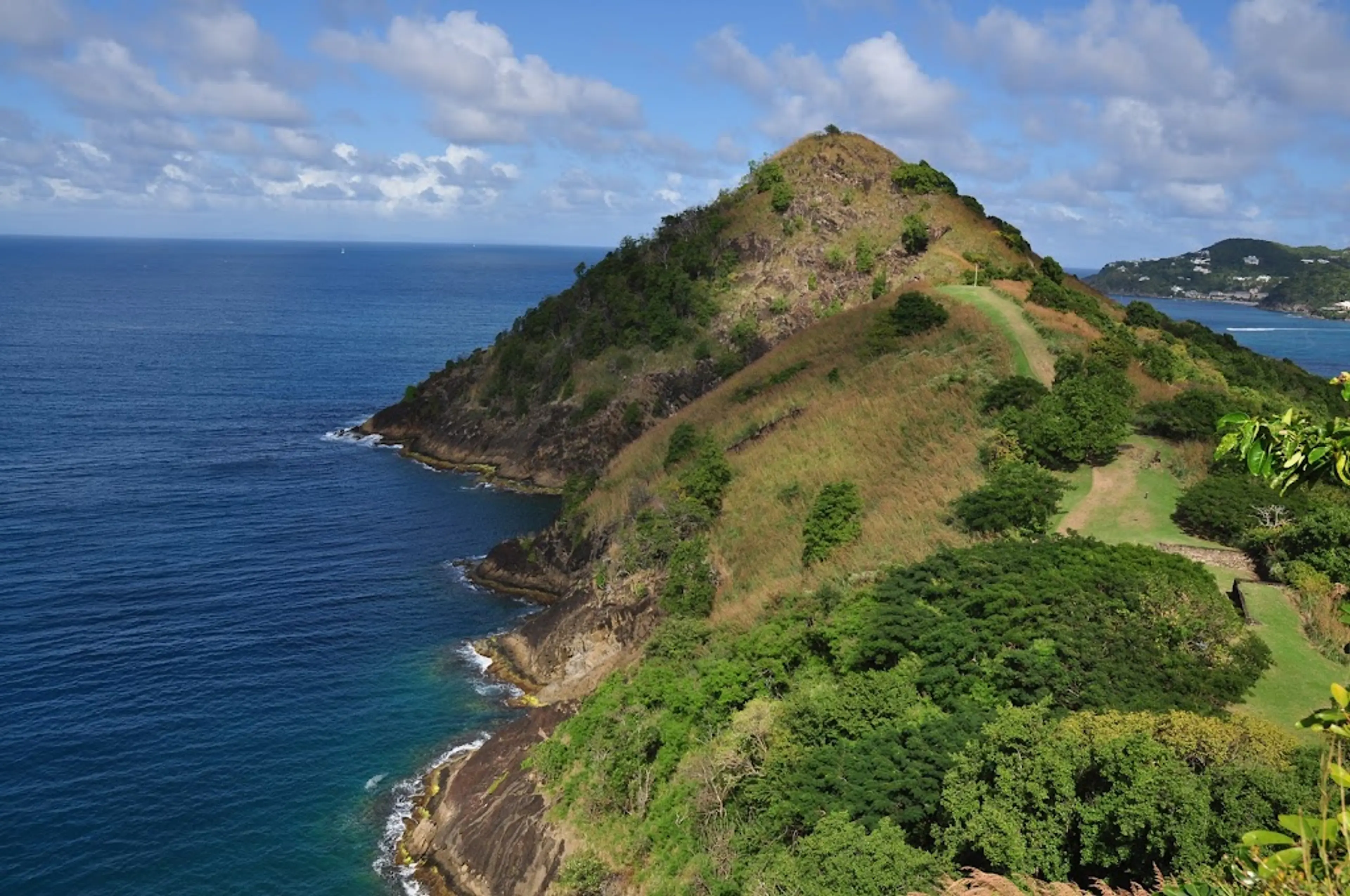
1Pigeon Island National Park
A historical park featuring military ruins, hiking trails, and two beautiful beaches.

2Reduit Beach
One of the most popular beaches in Saint Lucia, known for its golden sands and clear waters.
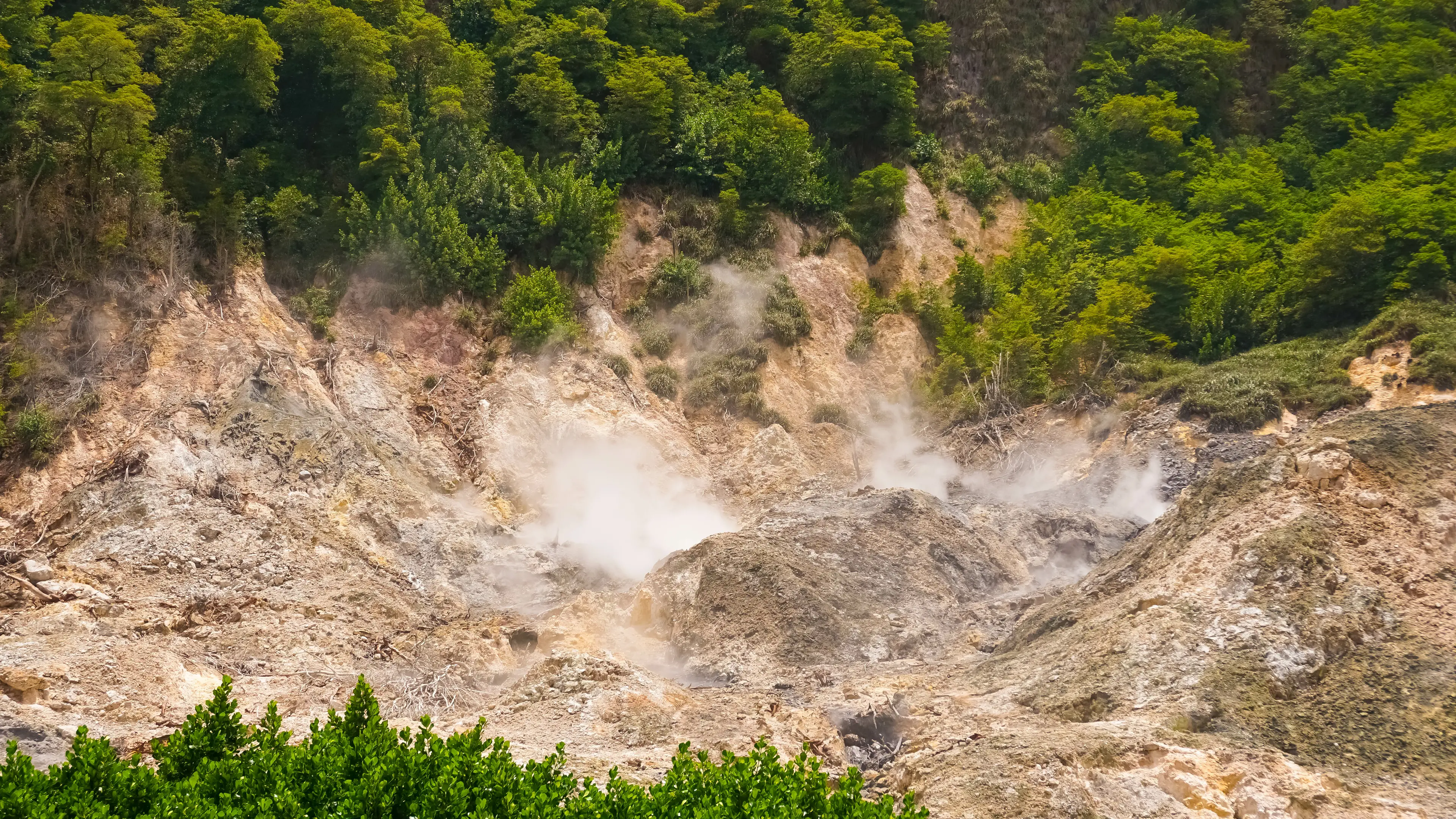
3Soufriere Volcano
Also known as the Sulphur Springs, it's the world's only drive-in volcano.
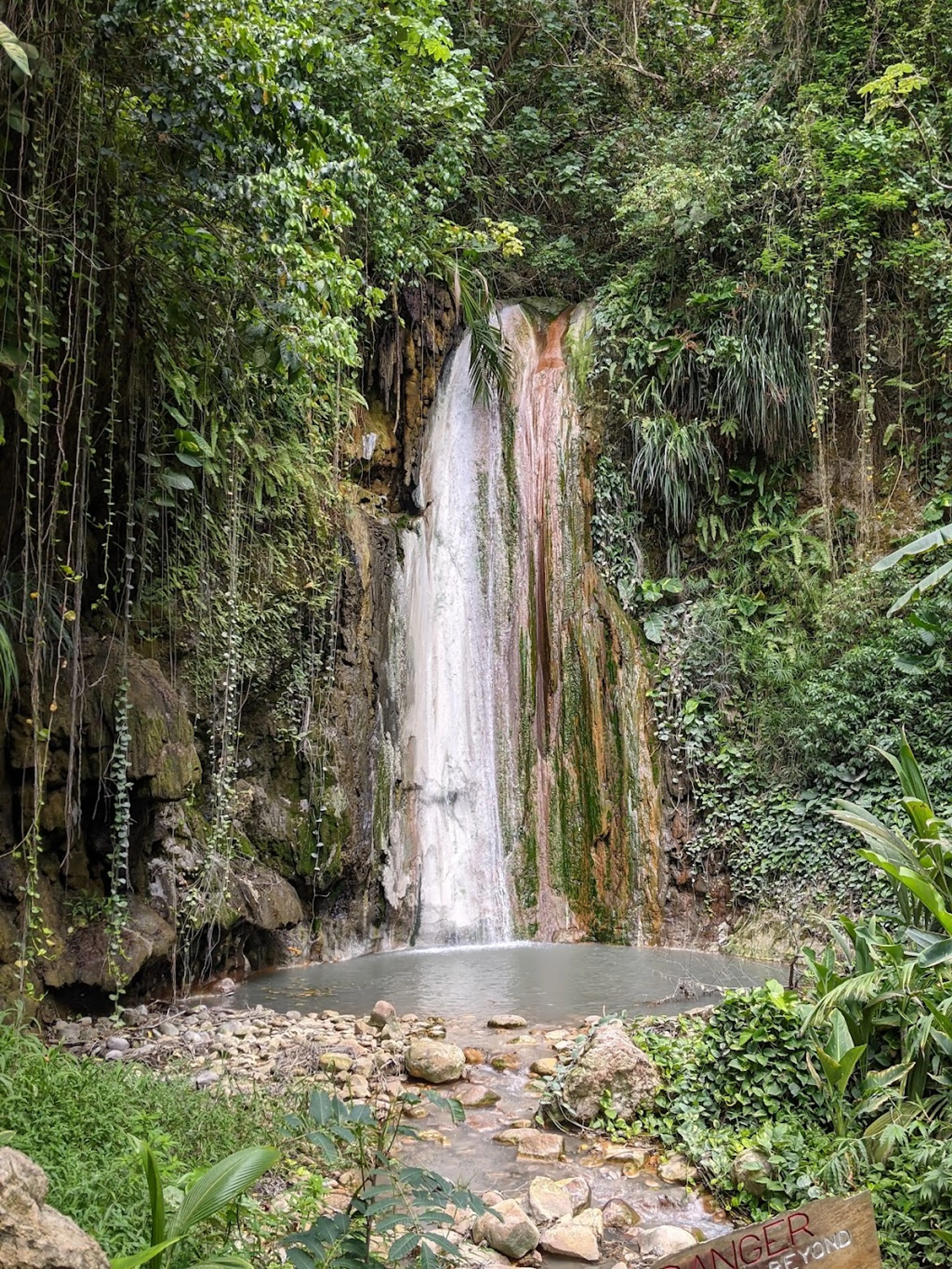
4Diamond Botanical Gardens
A beautiful garden featuring a waterfall, mineral baths, and a variety of tropical plants.
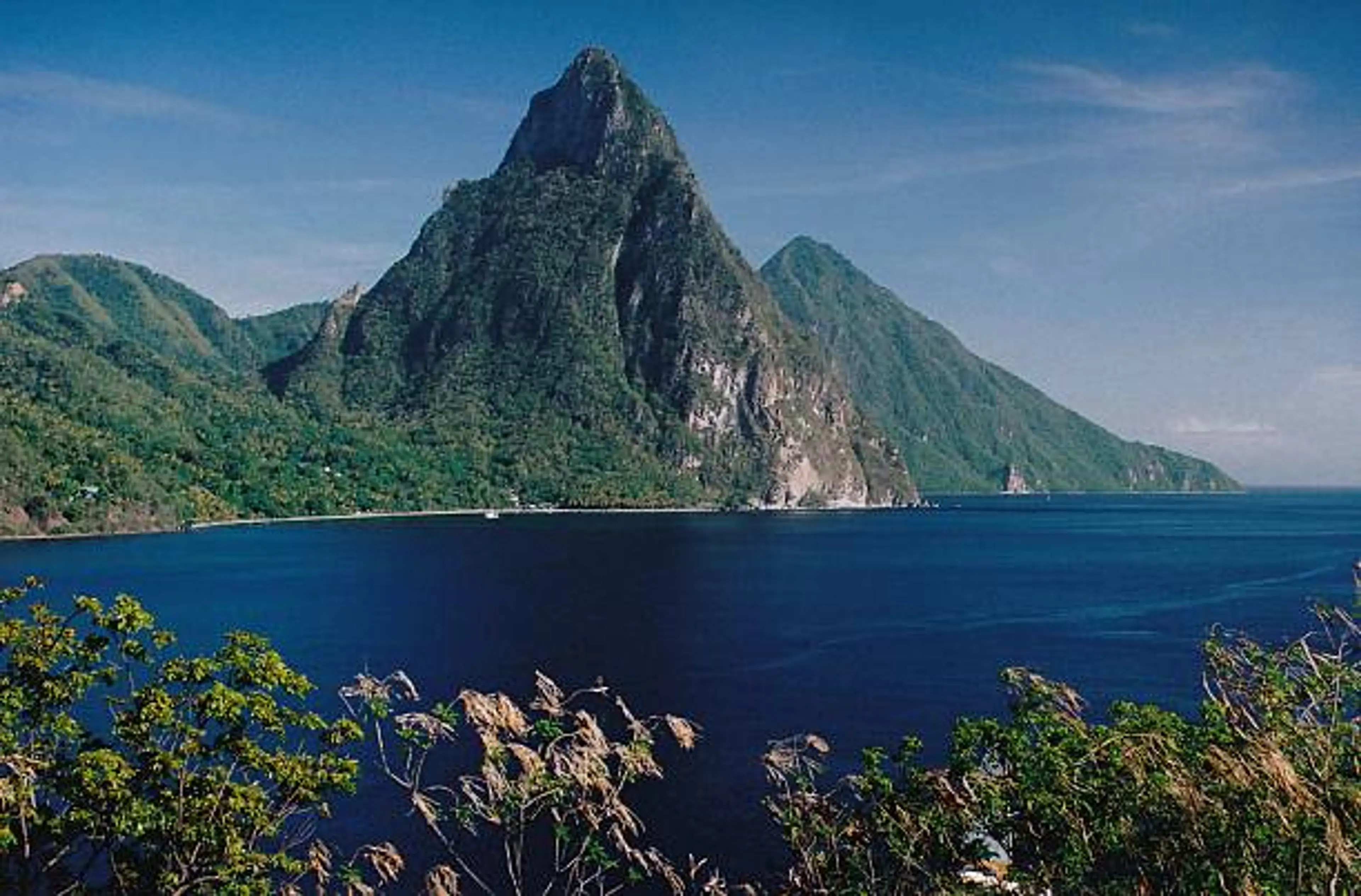
5The Pitons
Two volcanic spires rising side by side from the sea, The Pitons are a UNESCO World Heritage site and a popular spot for hiking and photography.
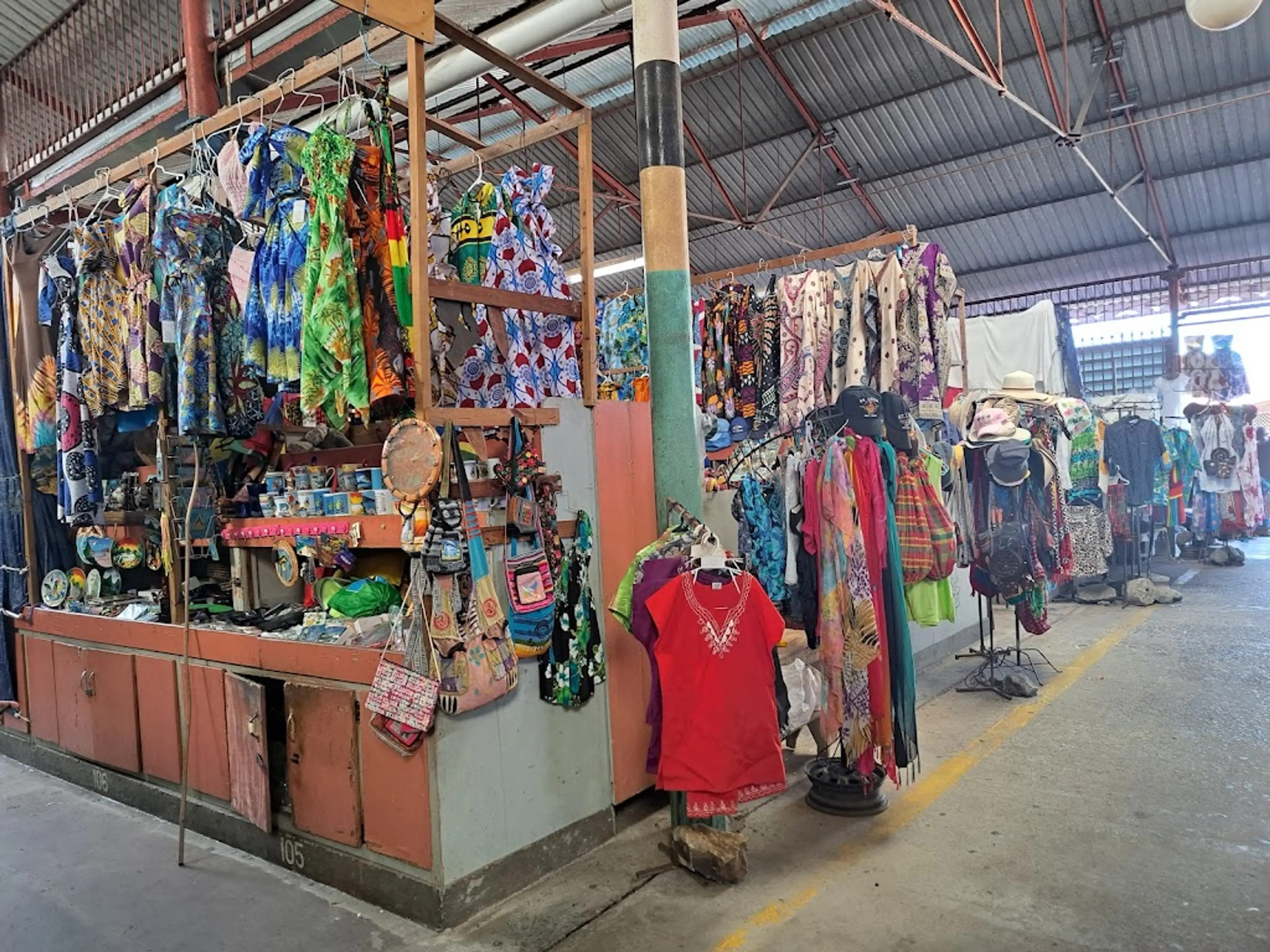
6Castries Market
A bustling market where visitors can buy fresh local produce, spices, handicrafts, and souvenirs. It's a great place to experience the local culture and cuisine.
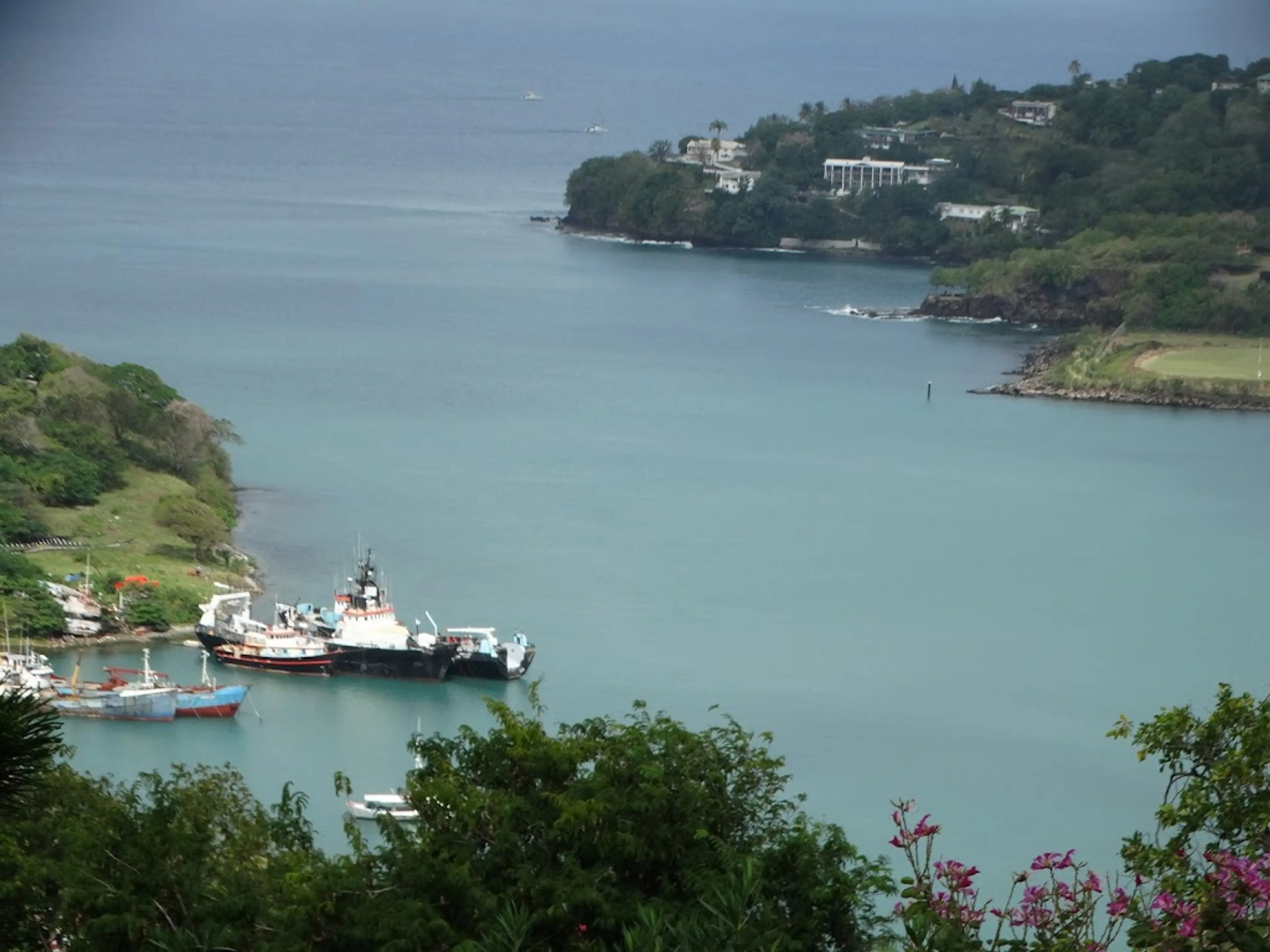
7Morne Fortune
Morne Fortune is a historic area offering panoramic views of Castries and the surrounding area. It's also home to several important landmarks including the Governor General's house and a historic military fort.
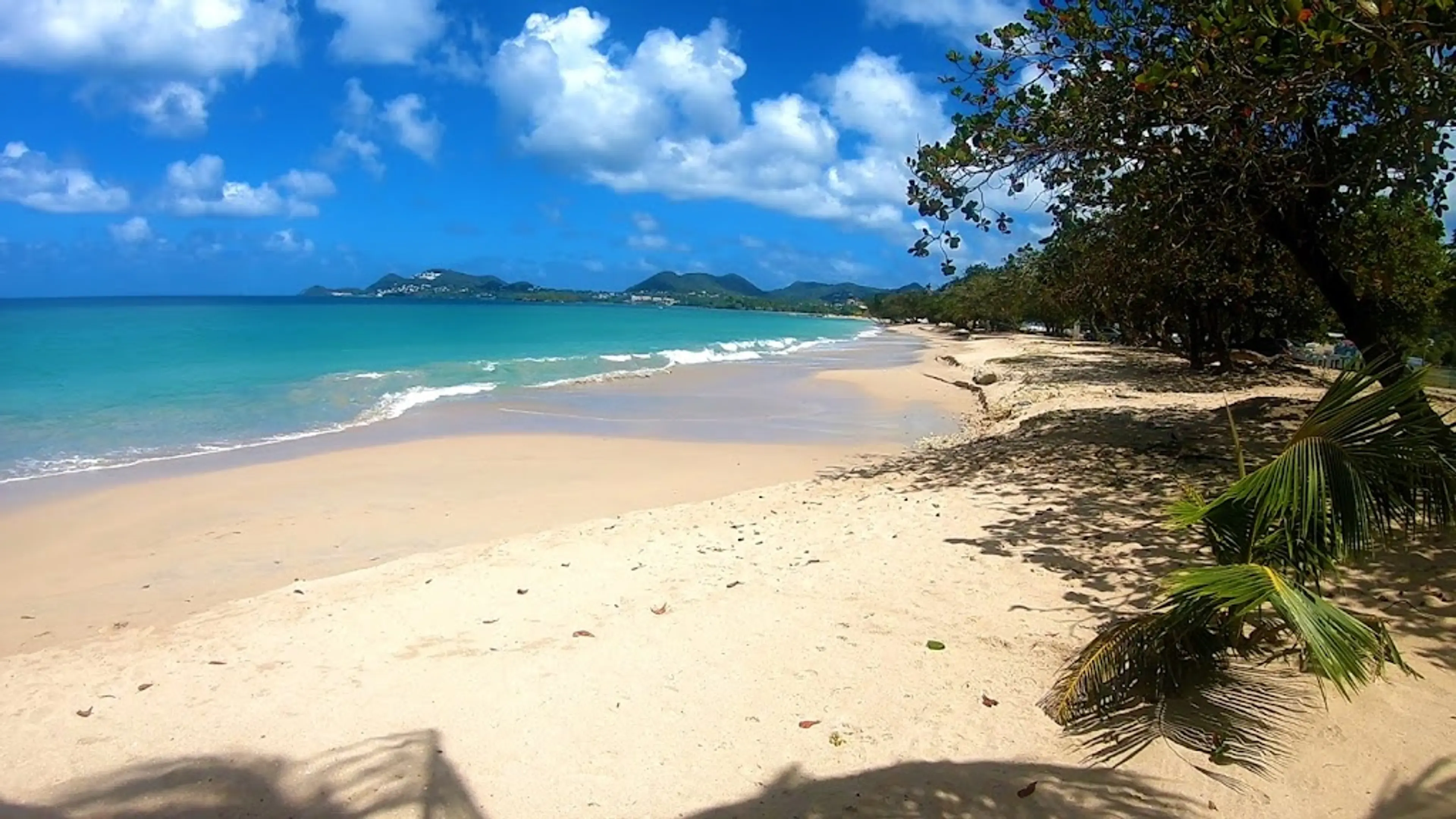
8Vigie Beach
Vigie Beach is a beautiful, tranquil beach located near the George F.L. Charles Airport. Despite its proximity to the airport, the beach is surprisingly quiet and uncrowded, making it a perfect spot for relaxation. It is also known for its clear waters and soft, white sand.
Local Food and Drinks (12)

Green Fig and Saltfish
This is the national dish of Saint Lucia, made with green bananas (locally known as figs) and salted cod fish. It's a hearty and flavorful dish that reflects the island's rich cultural heritage.

Bouyon
A hearty, one-pot dish made with a variety of meats, ground provisions, and dumplings. It's a popular comfort food in Saint Lucia, perfect for a filling lunch or dinner.

Lambi
Lambi is a delicious dish made from conch, a large sea snail. It's often cooked in a spicy sauce and served with rice, showcasing the island's fresh seafood and vibrant flavors.
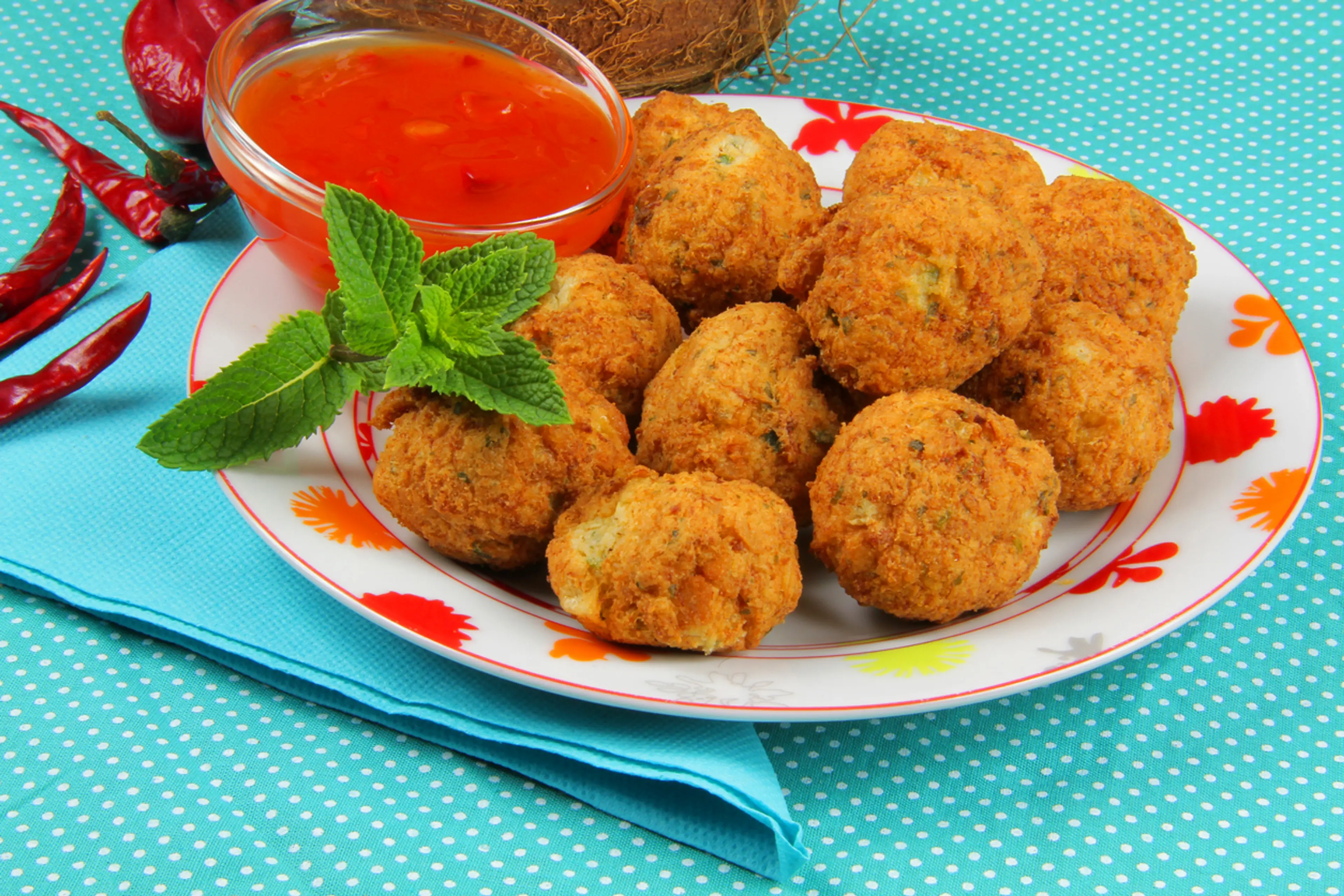
Accra
These are tasty fish cakes made from salted cod. They're a popular snack or appetizer in Saint Lucia, often enjoyed with a spicy dipping sauce.

Bakes
Bakes are a type of fried bread that's often served with saltfish or cheese. They're a staple in Saint Lucian cuisine, enjoyed at any time of the day.
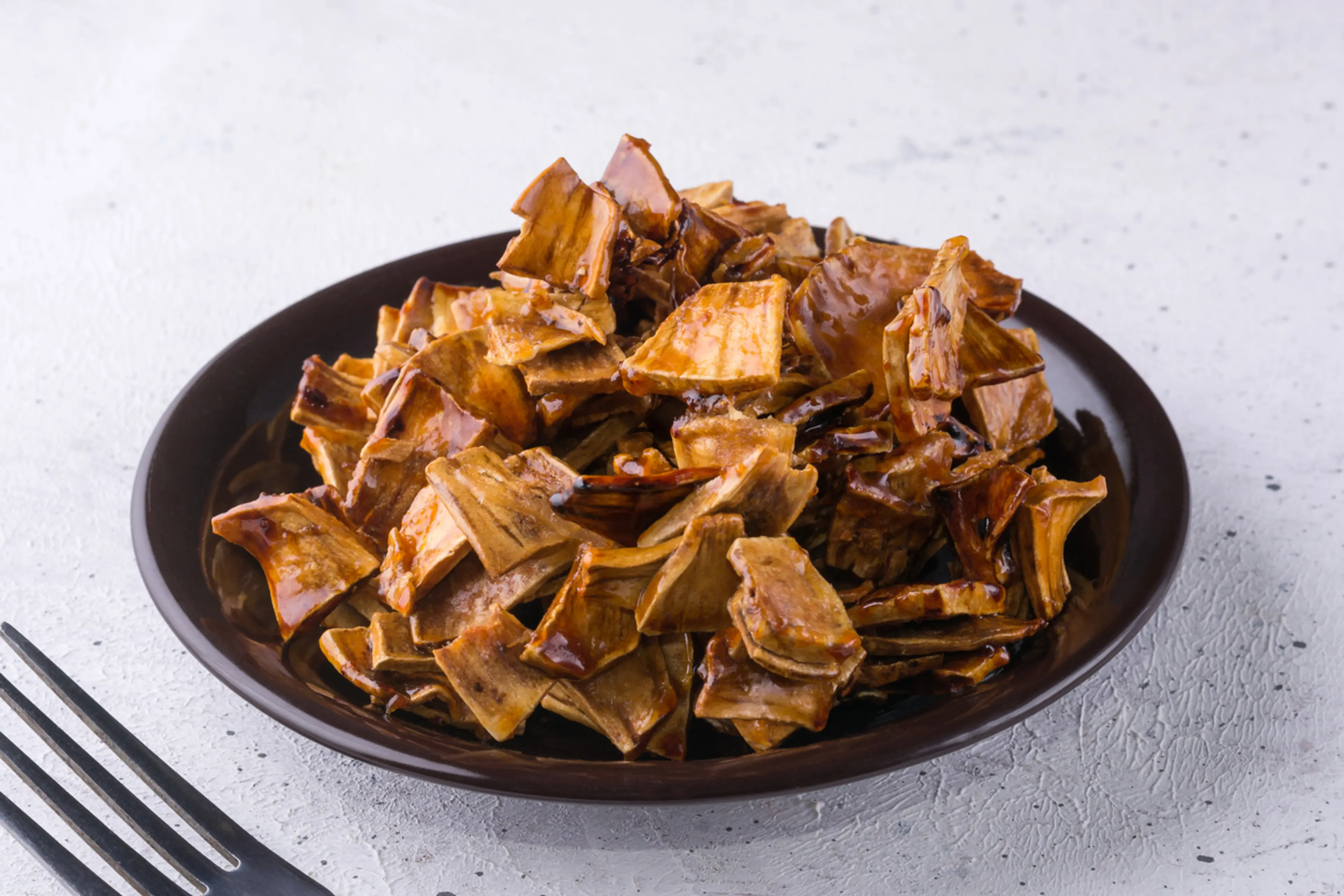
Roast Breadfruit
Breadfruit is a tropical fruit that's often roasted and served as a side dish in Saint Lucia. It has a starchy texture and a slightly sweet flavor, making it a versatile ingredient in many dishes.
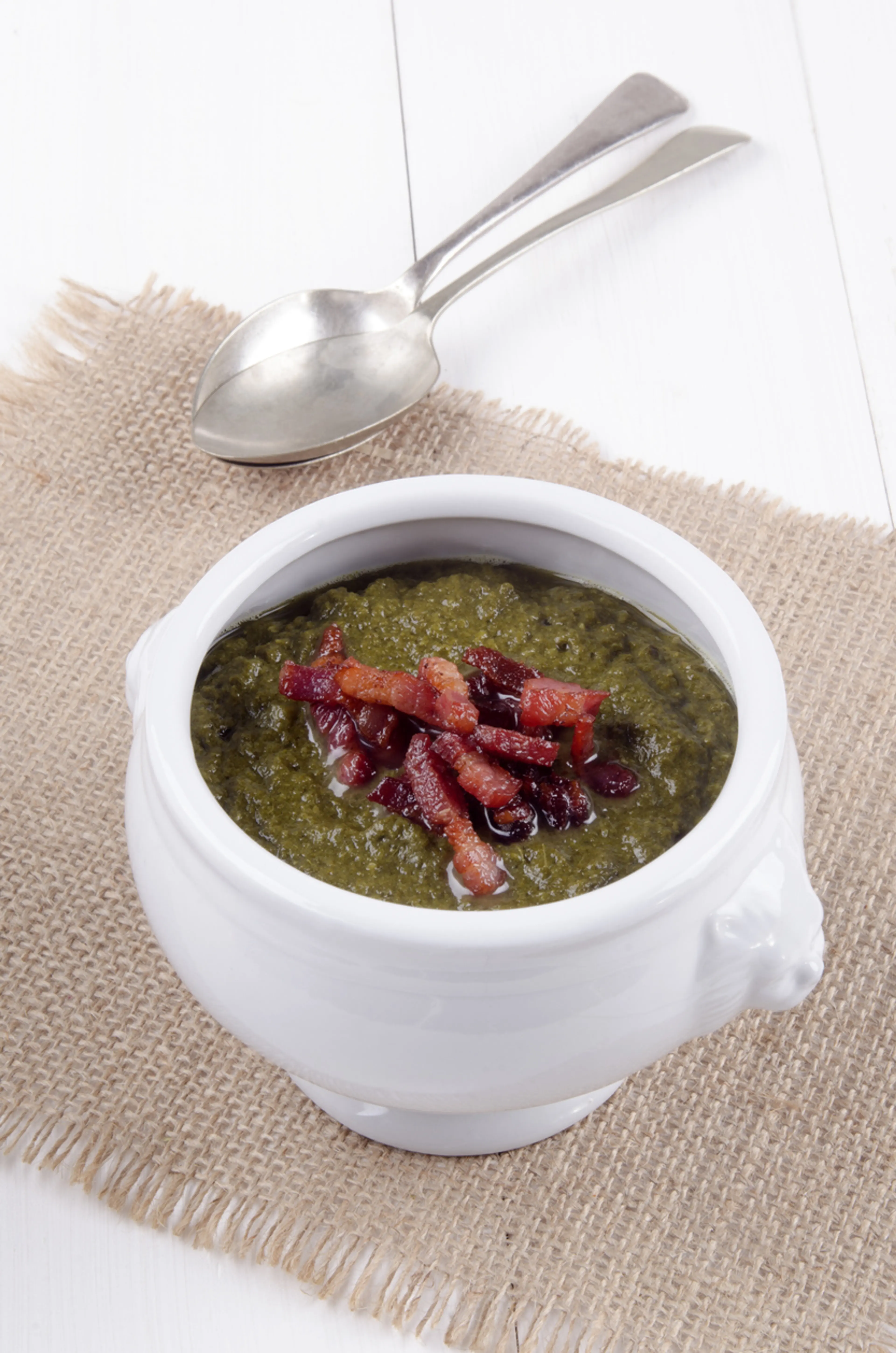
Callaloo Soup
This is a rich, creamy soup made from callaloo leaves, a plant similar to spinach. It's a traditional dish in Saint Lucia, often served as a starter or a light meal.

Pepperpot Stew
A hearty stew made with a variety of meats, vegetables, and a unique blend of spices. It's a traditional dish in Saint Lucia, often served during special occasions.

Piton Beer
Named after the iconic Piton mountains in Saint Lucia, this is a refreshing lager that's perfect for a hot day on the beach. It's a popular local beer, enjoyed by both locals and tourists alike.
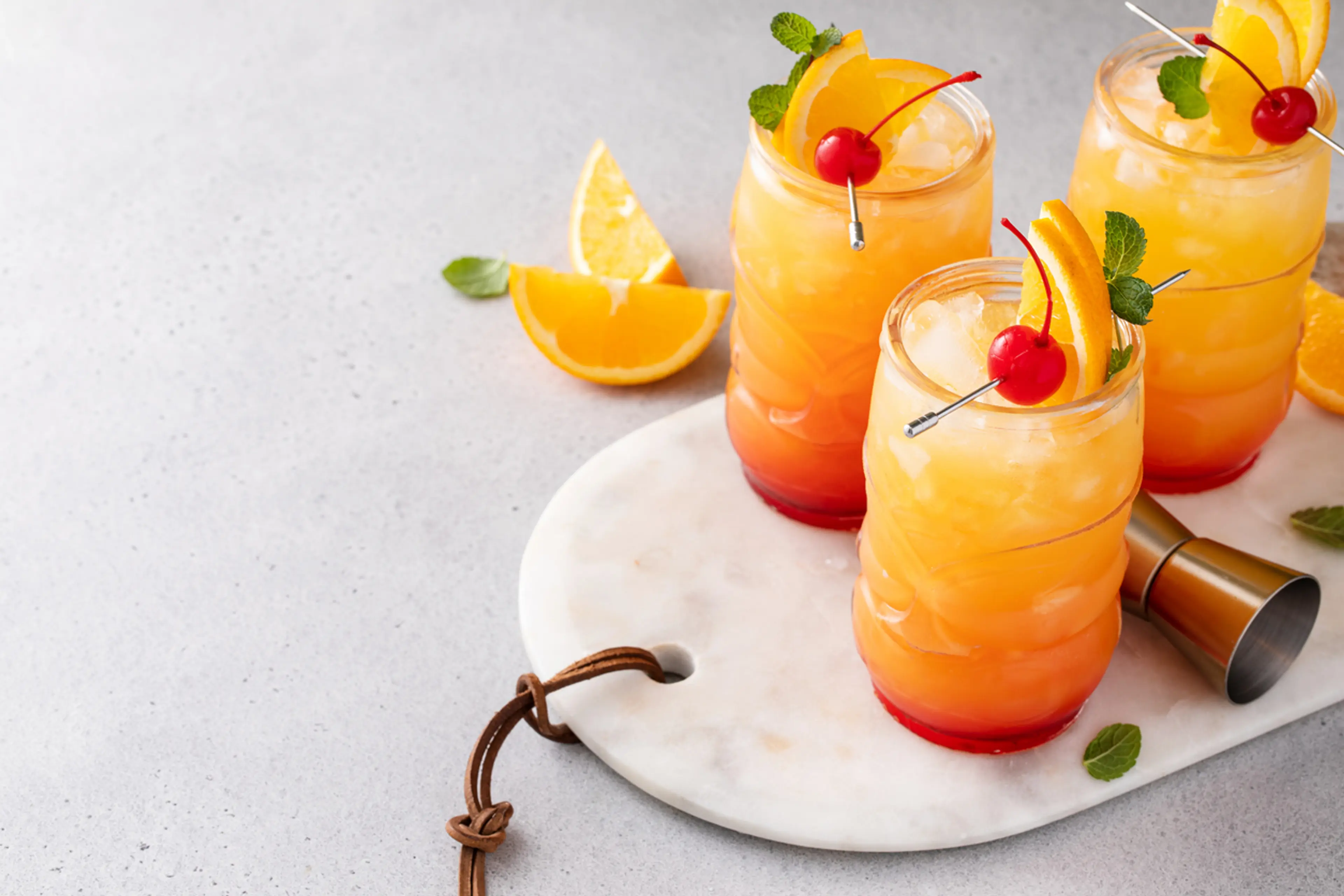
Rum Punch
Rum Punch is a classic Caribbean cocktail made with local rum, fruit juice, and a blend of spices. It's a popular drink in Saint Lucia, often enjoyed at beach bars and parties.

Sea Moss Drink
This is a nutritious drink made from sea moss, a type of seaweed. It's often blended with milk and sweeteners, creating a creamy, refreshing beverage that's popular in Saint Lucia.

Cocoa Tea
Cocoa Tea is a traditional Saint Lucian drink made from local cocoa and spices. It's often enjoyed for breakfast or as a comforting evening drink.
Best time to visit
The best time to visit Saint Lucia as a tourist is from mid-December to mid-April. This is the dry season, with less rainfall and plenty of sunshine, making it ideal for outdoor activities and beach time. However, this is also the peak tourist season, so expect higher prices and more crowds. If you prefer a quieter and more budget-friendly time to visit, consider the months of May to June, when the weather is still relatively dry and the island is less crowded.
How to get around
Rental Car
Renting a car is a popular way to get around Saint Lucia, especially for those who want the freedom to explore at their own pace. You'll find several car rental agencies at the airport and around the island. Remember, driving is on the left side of the road in Saint Lucia.
Taxi
Taxis are readily available throughout Saint Lucia. They are not metered, so it's recommended to agree on a fare before starting your journey. Taxis can be identified by their blue number plates with a TX prefix.
Minibus
Minibuses are the main form of public transportation in Saint Lucia. They operate on fixed routes and are a very economical way to travel. Minibuses can be identified by their green number plates with an M prefix.
Ferry
Ferries operate between the two main towns of Castries and Soufriere, offering a scenic way to travel. They also connect Saint Lucia with nearby islands such as Martinique, Dominica, and Guadeloupe.
Ridesharing
Ridesharing services, such as Uber, are not currently available in Saint Lucia. However, local taxi services often offer similar convenience and can be booked via phone or app.
Bicycle
Bicycling is a great way to explore the local area, particularly in the flatter parts of the island. Bike rentals are available in many tourist areas.
Foot
Walking is a viable option in the towns and resorts, and it's a great way to take in the local atmosphere. However, due to the hilly terrain and heat, it may not be practical for longer distances.
Helicopter
Helicopter transfers are available from the airport to various parts of the island. This is a quick and scenic way to travel, but it's more expensive than other options.
Water Taxi
Water taxis are a fun and convenient way to travel between beaches and resorts along the coast. They can be hailed from the shore or booked in advance.
Important information
Currency$ XCD
Time zoneUTC-4
Driving sideLeft
Emergency phone999, 911
Drinking waterYes
Power sockets
Voltage230 V
Things to know about Saint Lucia as a first time visitor
1
Saint Lucia is an Eastern Caribbean island nation, so its official language is English.
2
The local currency is the Eastern Caribbean Dollar (ECD), but US dollars are widely accepted.
3
The island operates on Atlantic Standard Time (AST), which is 4 hours behind Greenwich Mean Time (GMT-4).
4
Saint Lucia has a tropical climate, with temperatures ranging from 70°F to 90°F (21°C to 32°C) year-round.
5
The island has a rainy season from June to November, so pack accordingly if you're visiting during these months.
6
Saint Lucia is known for its friendly locals. Don't hesitate to ask for directions or recommendations.
7
Tipping is customary in Saint Lucia. A 10% service charge is often added to your bill, but it's customary to leave an additional tip if the service was good.
8
Public transportation is available but can be unreliable. Consider renting a car for more flexibility.
9
Driving is on the left-hand side of the road in Saint Lucia.
10
The island's tap water is safe to drink, but if you have a sensitive stomach, you might want to stick to bottled water.
11
Saint Lucia uses the same electrical outlets as the UK, so you may need a converter if you're coming from the US or other countries.
12
The island is generally safe, but like anywhere, it's important to be aware of your surroundings and take basic safety precautions.
13
Saint Lucia has a rich cultural heritage, with influences from African, French, and British cultures.
14
The island is known for its vibrant music scene, particularly reggae, soca, and calypso.
15
Saint Lucia's cuisine is a blend of Creole, Indian, and French influences. Don't miss out on trying local dishes like green fig and saltfish.
16
The island is home to a variety of wildlife, including the Saint Lucia parrot, the island's national bird.
17
Saint Lucia has a dress code that prohibits camouflage clothing, as it's reserved for military personnel.
18
The island has a strong rum tradition. Be sure to try some local rum or visit a distillery.
19
Saint Lucia is a popular destination for weddings and honeymoons, thanks to its beautiful beaches and romantic atmosphere.
20
The island hosts several festivals throughout the year, including the Saint Lucia Jazz Festival and the Saint Lucia Carnival.
Packing List
Clothing
Underwear (4-5 pairs)
Socks (4-5 pairs)
T-shirts (4-5)
Shorts (2-3 pairs)
Long pants (1-2 pairs)
Swimwear (2)
Lightweight jacket or sweater
Comfortable walking shoes
Sandals or flip flops
Pajamas
Hat or cap for sun protection
Sunglasses
Rain jacket or umbrella
Toiletries
Toothbrush and toothpaste
Deodorant
Shampoo and conditioner
Body wash or soap
Razor and shaving cream
Sunscreen
Insect repellent
Lip balm with SPF
Makeup and makeup remover
Hairbrush or comb
Travel-sized first aid kit
Prescription medications
Hand sanitizer
Travel documents and essentials
Passport
Driver's license or ID card
Credit and debit cards
Cash in local currency
Travel insurance documents
Hotel and car rental reservations
Emergency contacts and addresses
Electronics and gadgets
Smartphone and charger
Headphones
Camera and charger
Power adapter
Portable power bank
Laptop and charger (if necessary)
Miscellaneous items
Snacks for travel
Reusable water bottle
Books or e-reader for entertainment
Travel pillow and blanket
Earplugs and eye mask
Travel-sized laundry detergent
Ziplock bags for wet clothes
Beach bag
Weather Conditions
Saint Lucia, a beautiful island in the Caribbean, is known for its tropical weather. The island experiences warm temperatures throughout the year, typically ranging between 70°F (21°C) and 90°F (32°C), making it a great destination for sun-seekers. The island has a dry season from December to May and a wet season from June to November. If you're planning to visit Saint Lucia, it's important to consider these seasons. The dry season is the most popular time to visit due to the lower chance of rain. However, the wet season can still be a good time to visit as the showers are usually short and followed by sunshine. If you're a fan of water activities like swimming, snorkeling, or diving, you'll be pleased to know that the sea temperature is consistently warm, usually around 80°F (27°C), throughout the year. Despite the generally sunny weather, Saint Lucia is in the hurricane belt, and hurricanes can occur between June and November. While the risk is relatively low, it's still something to consider when planning your trip. Make sure to check the weather forecast regularly and consider travel insurance that covers weather-related disruptions. Remember to pack lightweight, breathable clothing due to the warm temperatures. Don't forget your sunblock, sunglasses, and a hat to protect yourself from the strong Caribbean sun. Even in the wet season, the sun can be intense. An umbrella or raincoat could be useful if you're visiting during the wet season. Lastly, while the weather in Saint Lucia is generally warm and sunny, it can be cooler and more prone to showers in the mountainous interior, so if you're planning on exploring the island's beautiful natural parks, it might be worth packing a light jacket or sweater.
| Month | Hi / Lo (°C) | Weather Overview |
|---|---|---|
January | 30° / 23° | January is a great time to visit Saint Lucia, with temperatures ranging from a low of 23°C to a high of 30°C. The weather is generally warm and pleasant, perfect for beach activities. |
February | 30° / 23° | February is similar to January, with temperatures ranging from 23°C to 30°C. It's a great time for outdoor activities and exploring the island's natural beauty. |
March | 31° / 23° | March sees a slight increase in temperature, with highs reaching up to 31°C. It's an excellent time for water sports and hiking. |
April | 32° / 24° | April is a bit warmer, with temperatures ranging from 24°C to 32°C. The weather is perfect for swimming and sunbathing. |
May | 33° / 25° | May is the start of the rainy season, but temperatures remain high, ranging from 25°C to 33°C. It's a good time to visit if you don't mind occasional showers. |
June | 33° / 26° | June is in the middle of the rainy season, with temperatures ranging from 26°C to 33°C. Despite the rain, the weather is still warm and suitable for indoor activities. |
July | 33° / 26° | July is similar to June, with temperatures ranging from 26°C to 33°C. It's a good time to visit if you enjoy tropical rain showers. |
August | 33° / 26° | August is one of the hottest months, with temperatures ranging from 26°C to 33°C. Despite being in the rainy season, there are still plenty of sunny days. |
September | 33° / 26° | September is also a hot month, with temperatures ranging from 26°C to 33°C. It's a good time to visit if you enjoy the heat and don't mind the occasional rain shower. |
October | 32° / 26° | October sees a slight decrease in temperature, with highs reaching up to 32°C. The weather is still warm, making it a good time for beach activities. |
November | 31° / 25° | November is a bit cooler, with temperatures ranging from 25°C to 31°C. The weather is pleasant, perfect for exploring the island's natural beauty. |
December | 30° / 24° | December is a great time to visit Saint Lucia, with temperatures ranging from 24°C to 30°C. The weather is generally warm and pleasant, perfect for beach activities. |
Did you know?
Places near by Saint Lucia
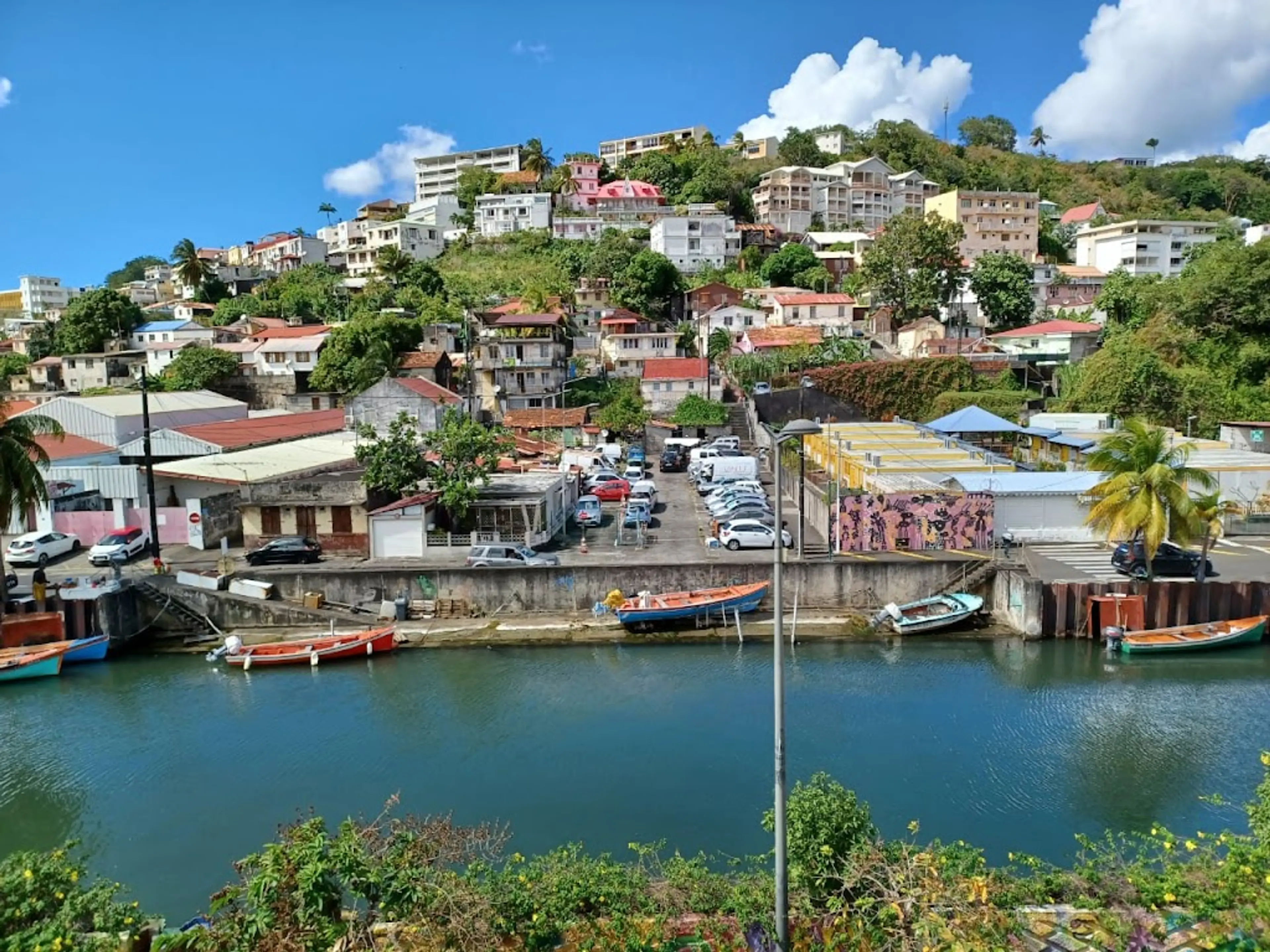
Martinique
A French Caribbean island known for its lush landscape and beautiful beaches
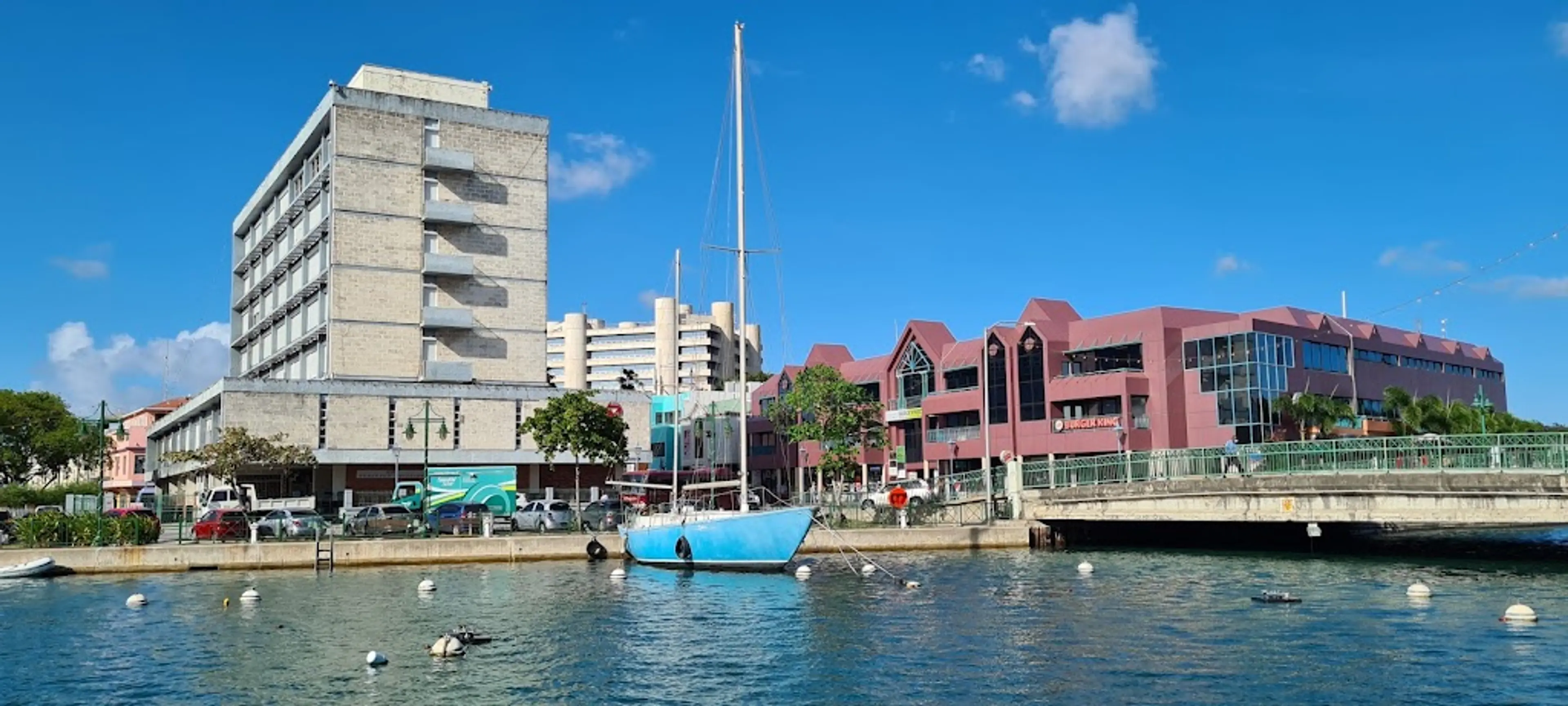
Barbados
An island nation known for its beautiful beaches and colonial architecture
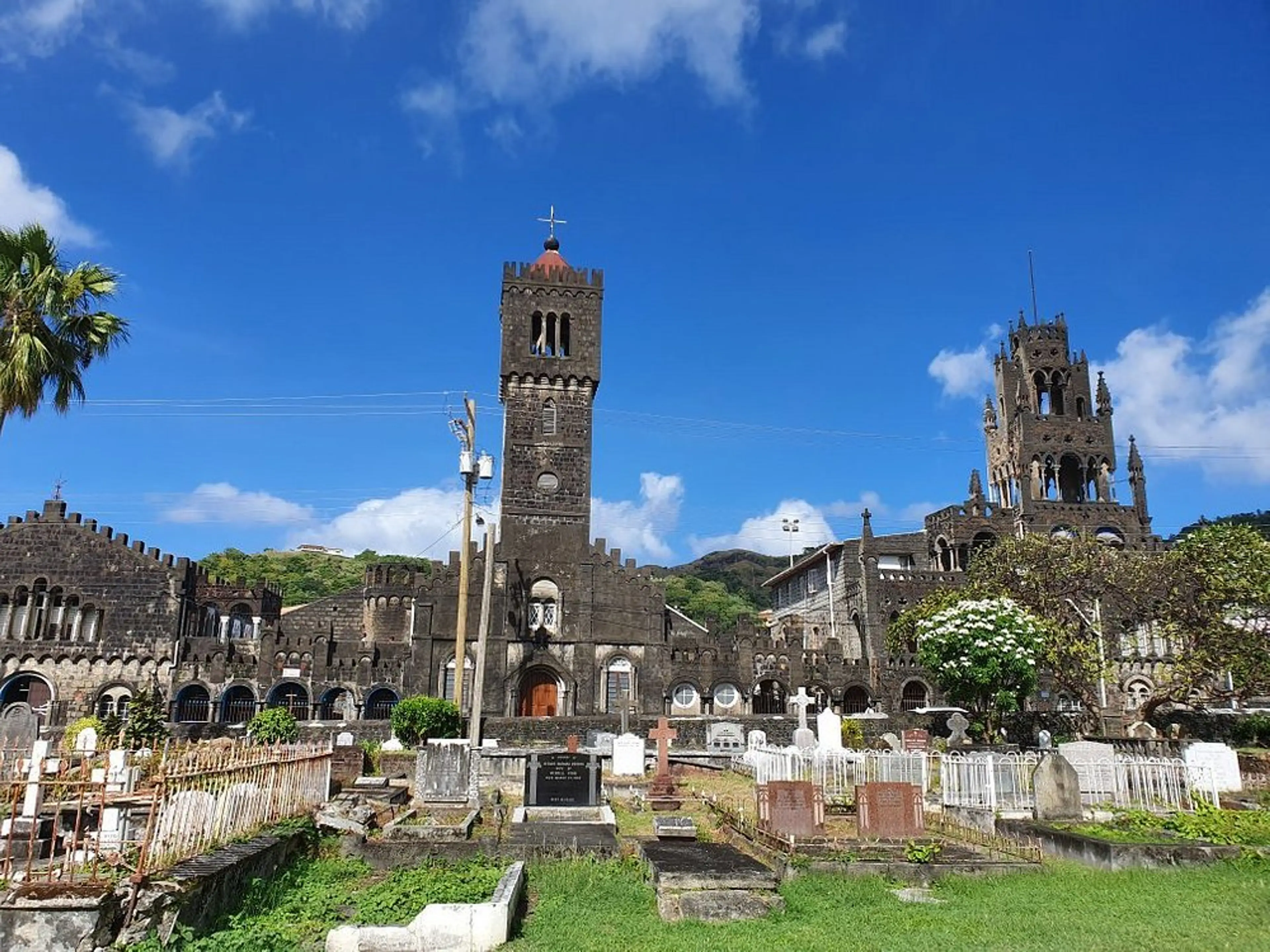
Saint Vincent and the Grenadines
A southern Caribbean nation comprising of a main island, St. Vincent, and a chain of smaller islands
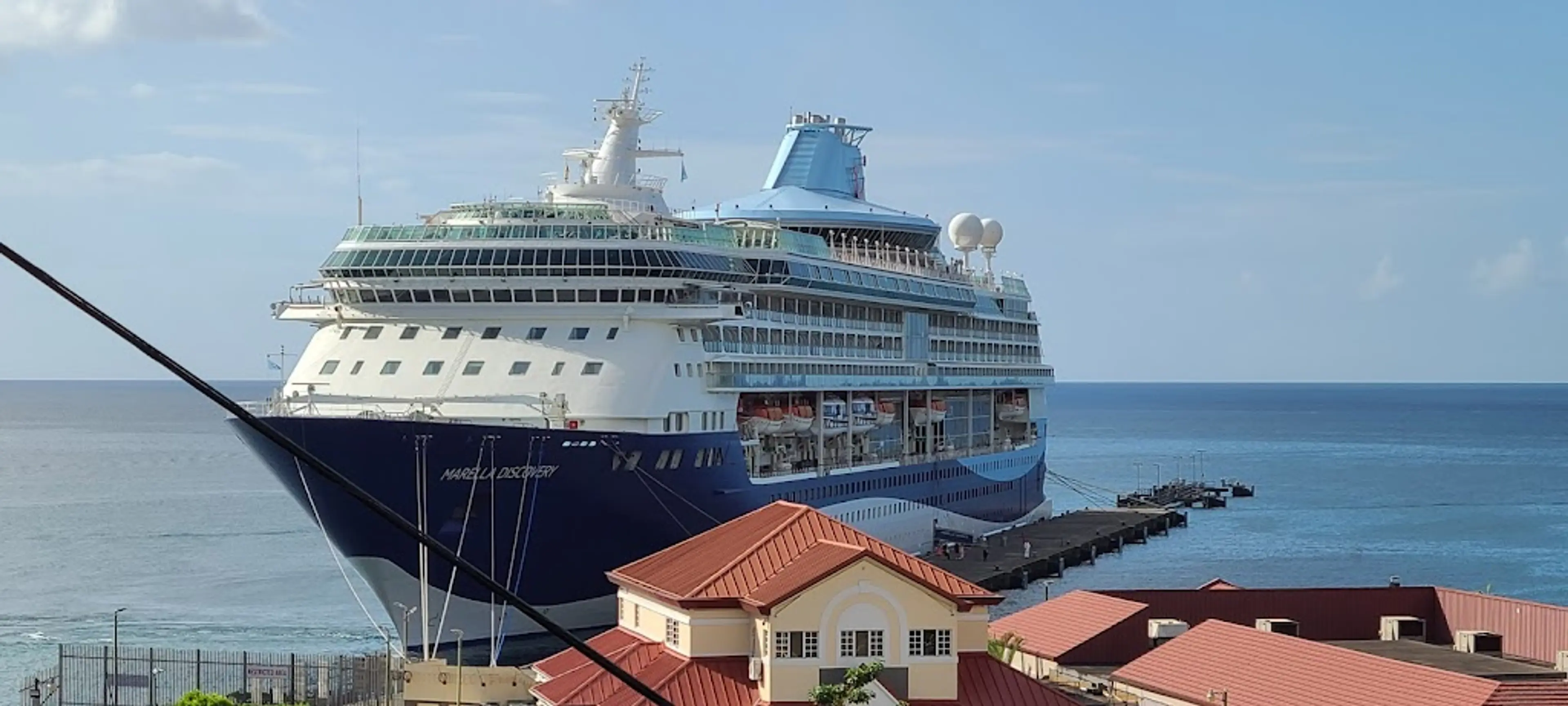
Grenada
Known as the 'Spice Isle', Grenada is famous for its beautiful beaches, lush greenery, and spice plantations
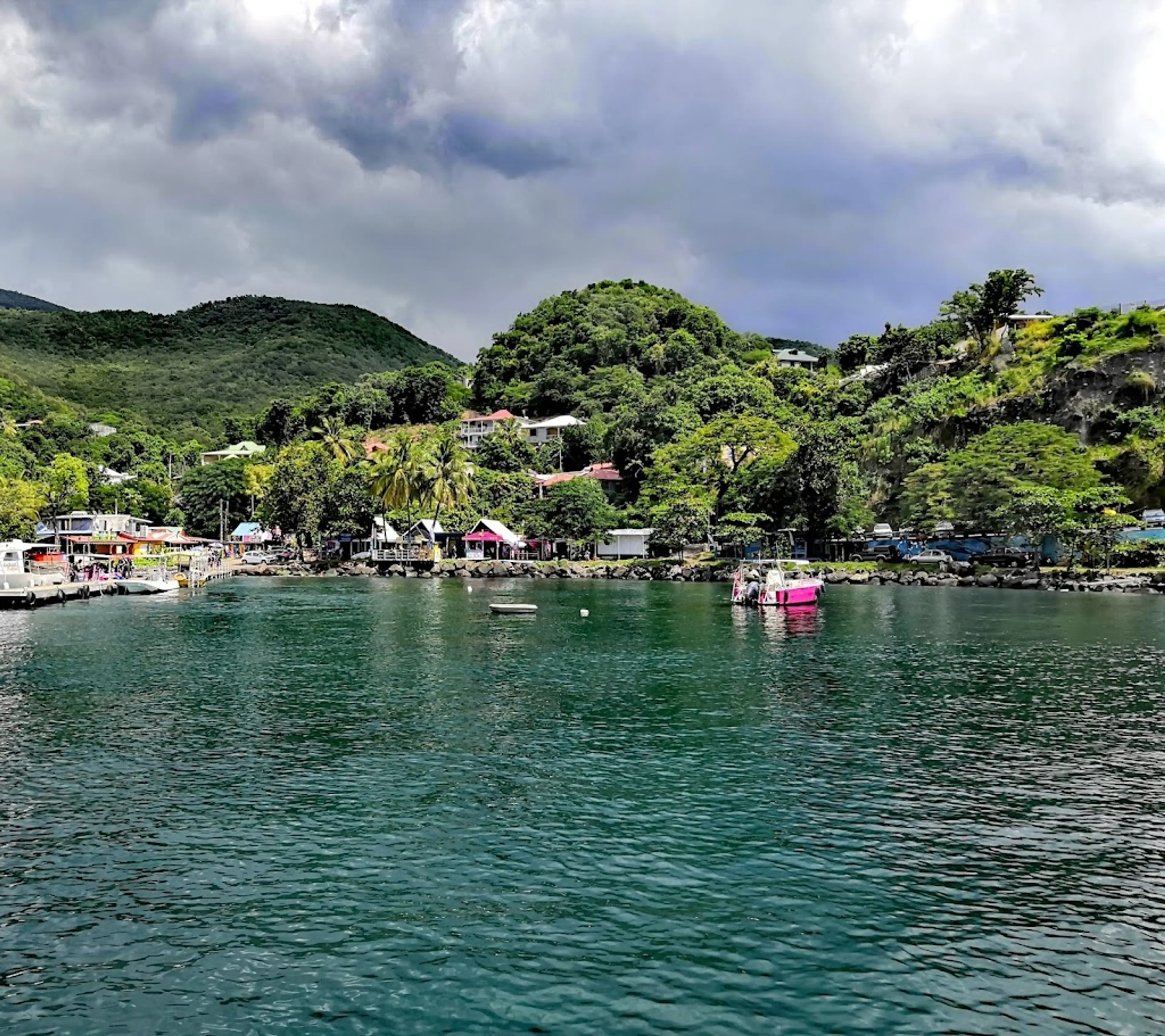
Guadeloupe
A French Caribbean island known for its beautiful beaches and the La Grande Soufrière volcano
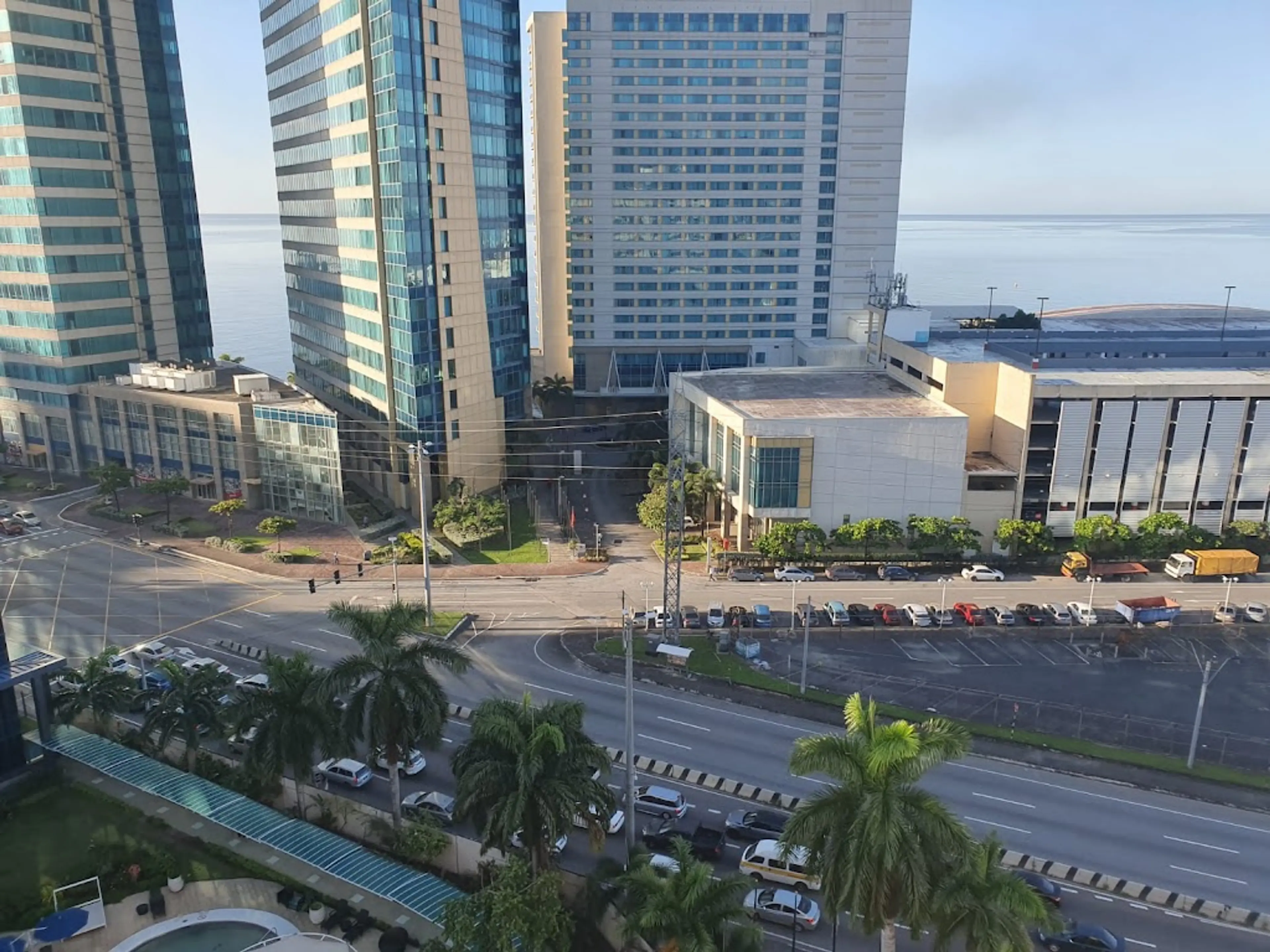
Trinidad and Tobago
A dual-island Caribbean nation known for its distinctive Creole traditions and cuisines

Dominica
Known as 'Nature Island', Dominica is famous for its lush, unspoiled rainforests, hot springs, and native culture